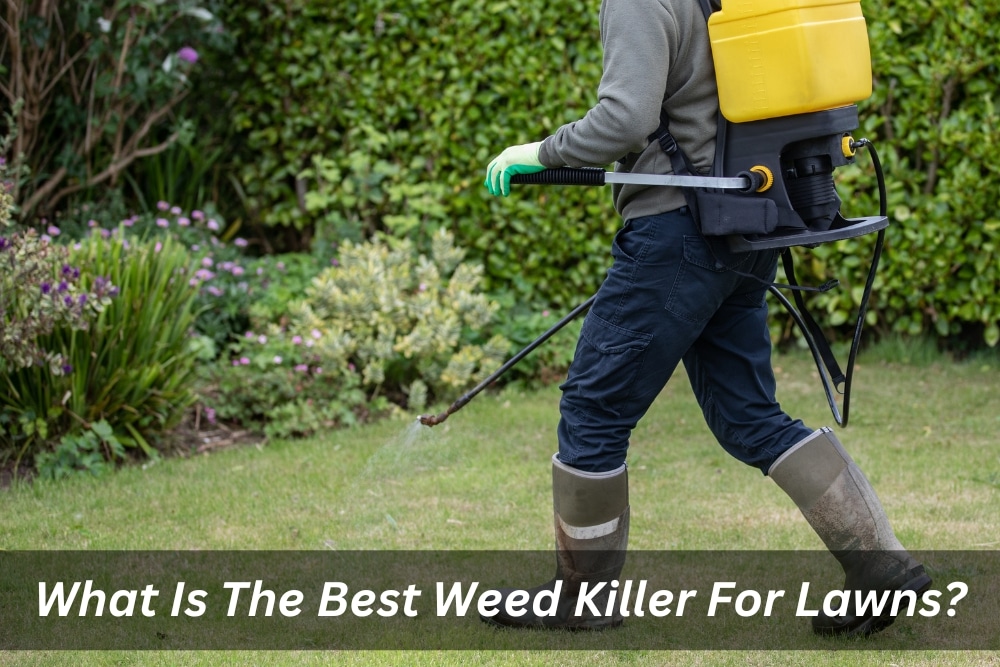When it comes to maintaining a lush and weed-free lawn, homeowners often find themselves in search of the best weed killer for lawns. Weeds have a knack for infiltrating our outdoor spaces, disrupting the beauty we strive to cultivate. That’s where weed killers come in. These specialized products are designed to tackle those pesky invaders, but understanding how weed killers work is key to choosing the right one for your lawn.
In this blog post, we will delve into the world of weed killers and explore their mechanisms, helping you make an informed decision to achieve a thriving, weed-free lawn.
What are the various types of weed killers for lawns?
There are several types of weed killers for lawns that can effectively control and prevent weeds. These weed killers target different aspects of weed growth and can be categorised as follows:
- Pre-emergent herbicides: Pre-emergent herbicides for lawns are applied before weed seeds germinate. They form a barrier in the soil, preventing weed growth. These herbicides are particularly useful for controlling annual weeds and can be beneficial when used as part of weeding services. They disrupt the weed’s root system, impeding its ability to grow and spread.
- Post-emergent herbicides: Post-emergent herbicides are applied to existing weeds after they have emerged from the soil. They work by targeting the leaves or other parts of the weed, killing it upon contact. Post-emergent herbicides are available in various formulations, including spray bottles, making them convenient for use in lawn weed control. They are effective against both broadleaf weeds and grassy weeds.
- Systemic herbicides: Systemic herbicides are absorbed by the weed and then transported throughout its entire system, including the root system. This type of herbicide kills the weed from within, ensuring complete elimination. They can be either pre-emergent or post-emergent herbicides, depending on when they are applied.
- Organic weed killers: An organic weed killer for lawns is a natural alternative to synthetic herbicides. They often use ingredients like vinegar, citric acid, or soap-based formulas to kill weeds. While they are considered environmentally friendly, their effectiveness may vary. Organic weed control can be part of garden services that focus on eco-friendly approaches.
Weed killers, whether pre-emergent or post-emergent, are designed to prevent weeds from taking over lawns and gardens. They are an essential tool in weed control and can be used as part of weeding or removal services to maintain a healthy and aesthetically pleasing lawn.
What factors should you consider when selecting the best weed killer for your lawn?
When choosing a weed killer for lawns, several factors should be taken into account.
- First, consider what type of weeds you’re trying to get rid of. Different weeds require different active ingredients. So a selective weed killer may be more effective in killing particular types of weeds without damaging desirable plants.
- Additionally, you should also take into account the size and type of your lawn and how often you plan on using the weed killer. If you have a large area to cover or multiple types of weeds to treat, it might be worth investing in a larger container with higher concentrations of active ingredients.
- Finally, if you’re looking for an eco-friendly option, there are also organic weed killers available that rely on natural ingredients to kill weeds.
Are there any organic or natural options to replace chemical weed killers?
Yes! If you’re looking for a more natural option to replace chemical weed killers, there are several organic and natural alternatives to choose from.
- Vinegar is one of the most popular options as it can be used as a spray or poured directly on weeds.
- Salt is also an effective weed killer and can be mixed with water before being sprayed onto unwanted vegetation.
- Finally, boiling water can also be used to kill weeds and is ideal for spot-treating small areas.
While these natural methods may take more time to work than chemical products, they are still an effective way to get rid of pesky weeds without having to worry about harsh chemicals in your yard.
What are some safety tips and best practices for applying weed killers to your lawn?
- Always read the product label of any weed killer you plan on using and follow all instructions closely. Make sure to wear protective clothing such as long pants, a long-sleeved shirt, and gloves when applying the weed killer. Additionally, avoid contact with skin or eyes and wash your hands thoroughly after application.
- Know your lawn’s needs. Before using a weed killer, assess your lawn’s needs and determine what type of weeds you are trying to get rid of. Research which active ingredients best target those particular weeds and select the appropriate product for your lawn.
- Timing is key. When applying a weed killer to your lawn, it is important to do so at the right time of day in order to maximise effectiveness. Read the product label for specific instructions. But generally, it’s best to apply early in the morning or late in the evening when the sun is not as intense.
By following these safety tips and best practices, you can ensure that your weed-killing treatments are both effective and safe.
To sum up, when selecting the best weed killer for your lawn, several factors should be taken into account. Consider what type of weeds you’re trying to get rid of. Also, choose an active ingredient that will target those specific weeds. If you’re looking for a more natural option, organic weed killers are also available. Finally, always follow safety tips and best practices when applying any weed killer to your lawn to ensure effectiveness and safety.
If you’re in need of professional lawn care services, A1 Gardening Sydney can help. Our experienced team can provide you with weed removal service as well as lawn care advice to ensure that your yard is always looking its best. Contact us today to learn more about our services!

